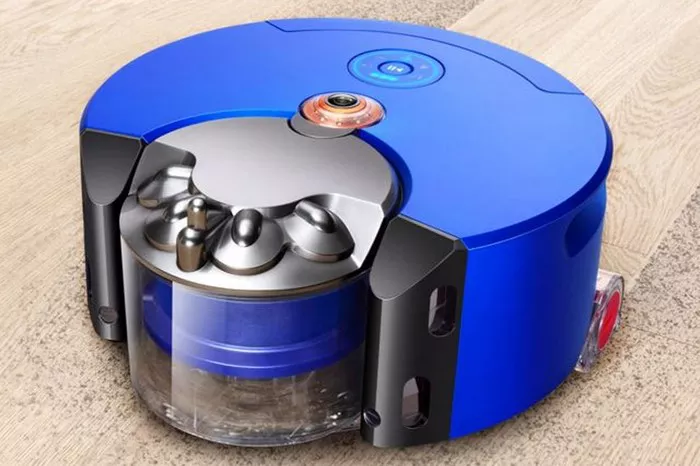Hardwood floors exude elegance and charm in any home. However, maintaining their beauty requires proper care and maintenance. One essential tool for keeping hardwood floors pristine is a vacuum cleaner. But with the multitude of options available in the market, choosing the right vacuum can be overwhelming. This comprehensive guide will walk you through everything you need to know to select the best vacuum for your hardwood floors.
Understanding Your Hardwood Floors
Before delving into vacuum options, it’s crucial to understand the characteristics of hardwood floors. Unlike carpeted floors, hardwood surfaces are prone to scratches, dents, and water damage. Therefore, the vacuum you choose should be gentle yet effective in removing dirt and debris without causing any harm.
Key Features to Look for in a Vacuum for Hardwood Floors
1. Suction Power: Opt for a vacuum with adjustable suction settings to prevent it from being too harsh on delicate hardwood surfaces. High suction power is necessary for effective cleaning, but the ability to adjust it ensures versatility.
2. Brush Roll: Look for a vacuum with a brush roll specifically designed for hardwood floors. Soft bristles or brush rolls with adjustable height settings are ideal as they prevent scratches and damage.
3. Filtration System: A vacuum with a reliable filtration system is essential for trapping fine dust and allergens without releasing them back into the air. HEPA filters are highly recommended for allergy sufferers and maintaining air quality.
4. Weight and Maneuverability: Since hardwood floors require frequent cleaning, choose a lightweight vacuum that is easy to maneuver around furniture and tight spaces.
5. Attachments and Accessories: Consider the additional tools and attachments provided with the vacuum, such as crevice tools, dusting brushes, and upholstery attachments. These accessories enhance versatility and make cleaning more efficient.
6. Noise Level: Opt for a vacuum with minimal noise output, especially if you have open floor plans or live in apartments where loud vacuuming can be disruptive.
7. Corded vs. Cordless: While cordless vacuums offer convenience, corded models typically provide more consistent suction power. Evaluate your cleaning needs and choose accordingly.
8. Price and Warranty: Invest in a vacuum that offers the best value for your budget and comes with a reliable warranty for peace of mind.
Types of Vacuums Suitable for Hardwood Floors
1. Canister Vacuums: Canister vacuums are versatile and highly maneuverable, making them suitable for hardwood floors. They often come with various attachments for different cleaning tasks.
2. Stick Vacuums: Stick vacuums are lightweight and convenient for quick cleanups on hardwood floors. However, ensure they have soft brush rolls to prevent scratches.
3. Upright Vacuums: Many upright vacuums now come with features specifically designed for hardwood floors, such as adjustable suction settings and detachable wand attachments.
4. Robot Vacuums: Robot vacuums are a convenient option for maintaining hardwood floors daily. Look for models with smart navigation and sensors to avoid collisions with furniture and detect dirt efficiently.
Maintaining Your Vacuum and Hardwood Floors
Proper maintenance of both your vacuum cleaner and hardwood floors is essential to ensure longevity and optimal performance. Here are some tips:
1. Empty the Dustbin or Bag Regularly: A full dustbin or bag can impede suction and airflow, reducing the vacuum’s effectiveness.
2. Clean or Replace Filters: Regularly clean or replace filters according to the manufacturer’s instructions to maintain optimal filtration and suction power.
3. Check and Clean Brush Rolls: Remove any tangled hair, debris, or threads from the brush roll to prevent clogging and maintain efficient cleaning.
4. Use Furniture Pads: Place furniture pads or felt protectors under heavy furniture to prevent scratches and dents on hardwood floors.
5. Avoid Excessive Moisture: While some vacuums offer wet-cleaning capabilities, excessive moisture can damage hardwood floors. Stick to dry cleaning methods whenever possible.
Conclusion
Choosing the best vacuum for hardwood floors requires careful consideration of various factors such as suction power, brush roll design, filtration system, and maneuverability. By understanding your cleaning needs and the specific requirements of hardwood floors, you can select a vacuum that not only effectively removes dirt and debris but also preserves the beauty and integrity of your floors for years to come.
FAQs
Q1. Can I use a vacuum with a beater bar on hardwood floors?
A1: Using a vacuum with a beater bar on hardwood floors is not recommended as it can cause scratches and damage. Opt for a vacuum with a soft brush roll specifically designed for hardwood floors to ensure gentle yet effective cleaning.
Q2. How often should I vacuum my hardwood floors?
A2: The frequency of vacuuming hardwood floors depends on various factors such as foot traffic, household pets, and indoor air quality. As a general guideline, aim to vacuum high-traffic areas at least once or twice a week to prevent dirt and debris buildup. Less frequented areas may require less frequent vacuuming.
Q3. Can I use steam cleaners on hardwood floors?
A3: Steam cleaners are not recommended for hardwood floors as they can cause warping, swelling, and irreversible damage to the wood. Stick to dry cleaning methods such as vacuuming or using microfiber mops for safe and effective maintenance of hardwood floors.

